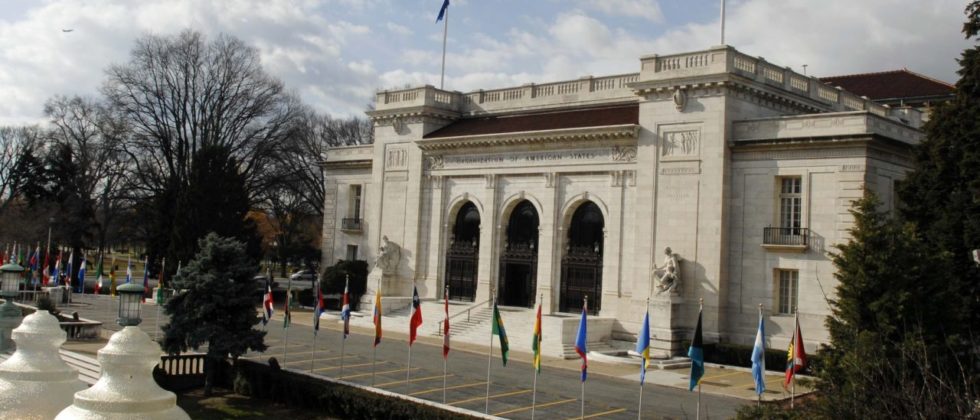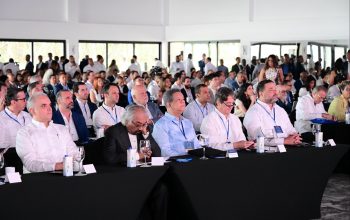news
“The Venice Commission: Constitution, Democracy, and Presidential Reelection”, an article by Dr. Leonel Fernández
June 18, 2019
In view of some of the experiences that have been taking place in Latin America, the OAS Secretary General, Luis Almagro, requested that the European Commission for Democracy through Law, an advisory body, respond to several concerns in relation to constitutional limits on presidential reelection.
The OAS submitted four questions to the European Commission in relation to the idea of whether a human right to reelection exists; if the restriction on term limits erodes human and political rights of candidates and voters; and what would be the best way to modify term limits within a constitutional state.
The commission, created in 1990 after the fall of the Berlin wall, is better known as the Venice Commission, because its members, who are experts in constitutional law, convene four times a year in that lovely Italian city. They meet and advise countries on constitutional matters to improve the development of democracy and human rights.
In response to the concerns of the OAS Secretary General, the Commission created a document known as the Report on Term-Limits.
This report, which starts from a comparative study of constitutional rulings on presidential term limits in several states around the world, came to the conclusion that there are currently five types or models of limits on presidential reelection, ranging from no limits to full prohibition.
However, in its analysis of the different forms of term limits, the Commission concluded that in most cases, the constitutions of most countries contain provisions that limit the term of the mandate for the country’s president, granting the right to reelection only once.
Term Limits
In the judgment of the members of the Venice Commission, presidential term limits are applied due to “the danger of abuse of power by incumbents who seek to prolong their tenure.”
Indeed, the problem consists of the fact that in presidential systems, the head of state holds a set of powers that place him or her in an advantaged position in relation to other candidates; and being the President of the Republic, in any country in the world, amounts to being in a permanent campaign.
Given his or her preponderant position, the incumbent leader has a set of economic and communications resources, social relationships, and influence, in a general sense, that—used in a permanent and indefinite fashion—lead, in the words of the Commission, to “the danger of having a republican monarch.”
In their findings, the commissioners indicate that nearly all states that have adopted a presidential system “impose constitutional limitations on the number of (successive) terms of a president in order to preserve a system of constitutional checks and balances.”
In reference to reality in Latin America, both at present and in the period since the postcolonial era, the Commission notes that history and social context have had a direct effect on national constitutions in regards to reelection and term limits.
This is undoubtedly true. Given the low economic and social development of most countries in Latin America after the independence period in the 19th century, instead of authentic and vigorous democratic systems, caudillist regimes and dictatorships arose and predominated until the final decades of the last century.
For the Venice Commission, “term limits aim to protect a democracy from becoming a de facto dictatorship.” In addition, they consider that such limits can strengthen a democratic society, given that they impose political alternation in the different electoral processes.
Likewise, they give hope to opposition parties that, through the process of periodic elections, they can achieve power, with no need to resort to mechanisms of force, such as military coups or violent revolutions.
In concluding on this aspect, the Venice Commission notes that the term limits that most representative democracies impose on the sitting president represent a reasonable limit on the right to be elected because they prevent unlimited exercise of power in the hands of the president.
The Commission adds that the president has an obligation to enforce the constitution, and may not demand political rights in contravention of the constitution; and term limits do not unduly restrict their human and political rights.
Reelection and Constitutions
In the political and academic world the prevailing opinion is that a constitution must have a certain sense of durability.
Although this is the case, it is no less true that periodically it must be adapted to the changes a society undergoes.
In that sense, a constitution is open to being reformed. The ease or difficulty with which that can be done is determined by whether this foundational document is flexible or rigid.
For a flexible constitution, the approval of an ordinary law is sufficient. A rigid one is more complicated, as in addition to requiring a qualified majority, reform can be subject to other conditions.
The members of the Venice Commission hold that while term limits restrict the rights of the president, given that that right is granted by the people, who have sovereign power; the same people “have a power to decide the term and the possibility of re-election of the president.”
Hence, in the opinion of the Commission, a “constitutional amendment is therefore required to modify term limits.”
However, to continue the Commission’s line of reasoning, “to the extent that constitutional amendments strengthening or prolonging the power of high offices of state are proposed, the motivation should be to improve the machinery of government as such, not the personal power and interests of the incumbent.”
To this it adds: “A sound principle and a good general standard against which to measure the democratic implications of such amendments would be that such amendments (if enacted) should have effect only for future holders of the office, not for the incumbent” [emphasis in original].
In short, limits on presidential reelection represent a means to reduce the danger of abuse of power by the incumbent head of state. In this way, they pursue the legitimate ends of protecting democracy and the rule of law.
Thus, for the Venice Commission, “abolishing limits on presidential re-election represents a step back in terms of democratic achievement.”
For the OAS, the report of this commission serves as an orientation guide and a juridical asset against reelection.






